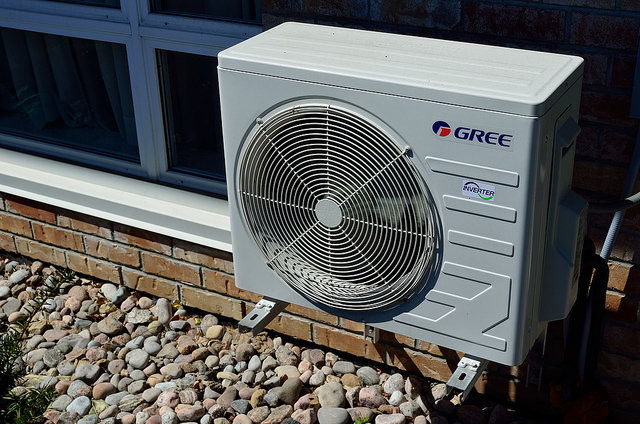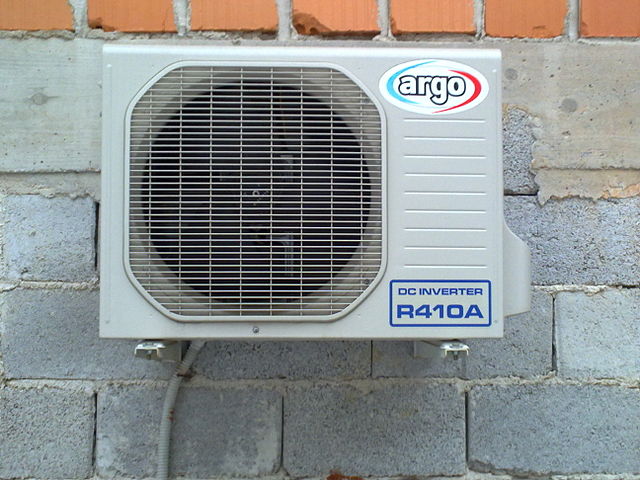Difference Between Inverter and Non Inverter Air Conditioner
When it comes to choosing the best air conditioner for your home or office, the inverter and non inverter air conditioner are the most popular choices. So if you’re ready to beat the heat this summer, you are not alone. Millions of air conditioner units are sold annually and an average household spends more than 10 percent of its utility bill on cooling units alone. This begs the question how to choose the right air conditioner unit. There are various factors that may influence your decision but one of the most important things to consider before buying one is how to choose between the two technologies: inverter and non inverter.
Both the systems excel in terms of performance and offer similar functions when it comes to cooling but they differ in the type of compressor motor they use. Let’s take a look at the two and understand the technological difference between them.

What is an Inverter Air Conditioner?
An inverter air conditioner unit has a variable speed compressor motor that adjusts the refrigerant flow inside the unit to control its cooling and heating capacity as required. The speed of the compressor motor in an inverter unit is directly proportional to the frequency of the power supply. It uses a variable-frequency censor to control the speed of the motor which in fact regulates the refrigerant flow inside the unit to provide just the right amount of cooling or heating as needed. This eliminates the frequent start-stop cycles thereby increasing energy efficiency of the unit on a long run.
What is a Non Inverter Air Conditioner?
A non inverter air conditioner unit has a fixed speed compressor motor. Unlike inverter units, they work on an “all or none” principle meaning the compressor automatically goes on and off rather than running at a full speed all the time. The compressor automatically switches off when the desired temperature is reached and starts again when the temperature increases. Because of the frequent on-off cycles, the compressor always works at high power which creates a whole lot of noise while running thereby consuming more electricity at times making them less energy efficient than their inverter counterparts.

Difference between Inverter and Non Inverter Air Conditioner
Technology in Inverter and Non Inverter AC
An inverter, in general, is a device to change the type of current from AC to DC or vice-versa. In terms of air conditioner units, an inverter is used to control the power supply frequency of the compressor motor to adjust the cooling/heating capacity of the unit. An inverter air conditioner contains a variable speed compressor that regulates the temperature to provide just the right amount of cooling and heating as needed. A non inverter air conditioner, on the contrary, has a fixed speed compressor which works on an “all or none” principle meaning it switches on and off when required.
Operation of Inverter and Non Inverter AC
An inverter air conditioner adjusts the speed of the compressor to control the flow of the refrigerant in order to regulate the conditioned-space temperature as required. When the unit is switched on, the compressor inside the unit runs at full speed all the time without starting and stopping frequently. This ensures precise cooling or heating power as required. A non inverter air conditioner delivers a fixed amount of power based on the room temperature. This makes the compressor go off when the desired room temperature is reached and start again when the temperature increases.
Energy Efficiency
The main difference between the inverter and non inverter air conditioner is the way they operate around room temperature. The cooling and heating is an automated process in inverter air conditioner units as the censor inside the unit adjusts the power supply according to the room temperature which automatically reduces the electricity consumption thereby making it more energy-efficient than its non inverter counterpart. A non inverter unit goes on and off any time to keep the temperature within a certain threshold limit around the room temperature making it less eco friendly.
Noise of Inverter and Non Inverter AC
An inverter air conditioner heating/cooling capacity varies depending on the room temperature and the outdoor temperature. Because the compressor inside the unit doesn’t go off and on as frequently as its non inverter counterpart does and it keeps working at a moderate temperature all the time, it’s a lot quieter in operation. A non inverter air conditioner is less efficient when it comes to operation because they automatically turn on and off all the time, thereby creating a whole lot of noise than the inverter unit. It works a little harder because of its operation hence contributes to more noise.
Cost of Inverter and Non Inverter AC
The quieter and smoother operation and energy efficient technology only add up to the cost of inverter air conditioner units. They are the latest of the technology used in the air conditioner units against the non inverter types which put the inverter ACs a little more on the higher side when it comes to pricing. Inverter air conditioners are a little more expensive than their non inverter counterparts which are significantly less pricey. However, installation of a non inverter AC unit will probably cost more than what an inverter AC will cost.
Inverter vs. Non Inverter Air Conditioner: Comparison Chart

Summary of Inverter vs. Non Inverter Air Conditioner
The bottom line is, the non inverter air conditioner units might be a little less expensive when compared to the inverter air conditioner units, but they are less reliable and more expensive to maintain and manage. Inverter units are the latest in the air conditioning technology that use inverters to control the speed of the compressor thereby eliminating frequent on-off cycles which eventually increases efficiency thereby increasing the life span of the components of inverter AC units. While the initial costs may get a little higher against the non inverter units, the higher expense is an offset against energy consumption which makes them the most preferred choice of air conditioner units.
- Difference Between Caucus and Primary - June 18, 2024
- Difference Between PPO and POS - May 30, 2024
- Difference Between RFID and NFC - May 28, 2024
Search DifferenceBetween.net :
14 Comments
Leave a Response
References :
[0]Bartolo, Helena Maria, et al. Challenges for Technology Innovation: An Agenda for the Future. Florida: CRC Press, 2017. Print
[1]Whitman, Bill, et al. Refrigeration and Air Conditioning Technology. Boston: Cengage, 2012. Print
[2]Pita, Edward G. Air Conditioning Principles and Systems. New Jersey: Prentice Hall, 2002. Print
[3]Image credit: https://www.flickr.com/photos/opengridscheduler/26869601272
[4]Image credit: https://upload.wikimedia.org/wikipedia/commons/thumb/d/d9/R410aargo.jpg/640px-R410aargo.jpg

thank a lot i know exactly the difference two type of ac.
I read this article and it made me remind of my Engineering Exam where we used to write 1 feature in 5 different ways!
One more thing, its Sensor and not Censor.
If possible please elaborate.
A Censor is a person who stops you from talking or writing or forces you to make your message conform to what they want.
A Sensor is a device to measure something. Like tempurator or revolutions per time unit.
Hi Aniket, would you recommend an inverter or non inverter domestic air con? Also, is there any particular good brand of air con you would recommend? Regards,
Hi Aniket, is there any particular brand of domestic air con you would recommend? Regards
What is the threshold voltage for an inverter type AC?
I want to know about the o general ac…. Please give me some information about o general as i am so confuse that which ac should i have to buy.
Amazing post! Your post is very informative and I felt quite interesting reading it. Your blog images are very nice. Thanks for posting such post and waiting for more in future.
This statement confused me.
“Noise of Inverter and Non Inverter AC
An inverter air conditioner heating/cooling capacity varies depending on the room temperature and the outdoor temperature. Because the compressor inside the unit doesn’t go off and on as frequently as its non inverter counterpart does and it keeps working at a moderate temperature all the time, it’s a lot quieter in operation. A non inverter air conditioner is less efficient when it comes to operation because they automatically turn on and off all the time, thereby creating a whole lot of noise than the inverter unit. It works a little harder because of its operation hence contributes to more noise.”
We have 2 AC an inverter and a non inverter different brands but they are both network company. Based on what I am experiencing as of the moment my inverter AC 1.5 HP is literally noisy like an engine. This is consistent on a 18 degrees Fan 3 mode. The only way I could eliminate some of the noise is by setting it to dry mode which is not ideal as I am located in a humid country. Note that this is a one week old AC On the other room, a much bigger room, I got 1 HP which is a 2 years old unit and that sounds cool and music to my ears.
I hope this thread is still active and I could get a response from the person managing this. Thank you!
You forgot one important difference. A non inverter AC will also do a better job at dehumidifying the air as it still runs at full power intermittently when near the desired temperature. The inverter unit will not dehumidify the air when the compressor is running at slow speed. The lower the humidity the higher the temperature setting can be to feel comfortable
Use full
Guys try to get it right without the political correctness of ‘energy savings etc’. All air conditioning use energy full stop. The inverter is the ‘piece’ outside that acts as the heat exchanger. No more and no less.
The inverter is necessary in order to remove the heat from the compressant and return the cooled compressant, the more efficiently it can be done, the better . .
A contradiction here: 1. Inverter works by varying the speed of the motor that drives the compressor. 2. The inverter compressor always runs at full speed.
Both cannot be true.